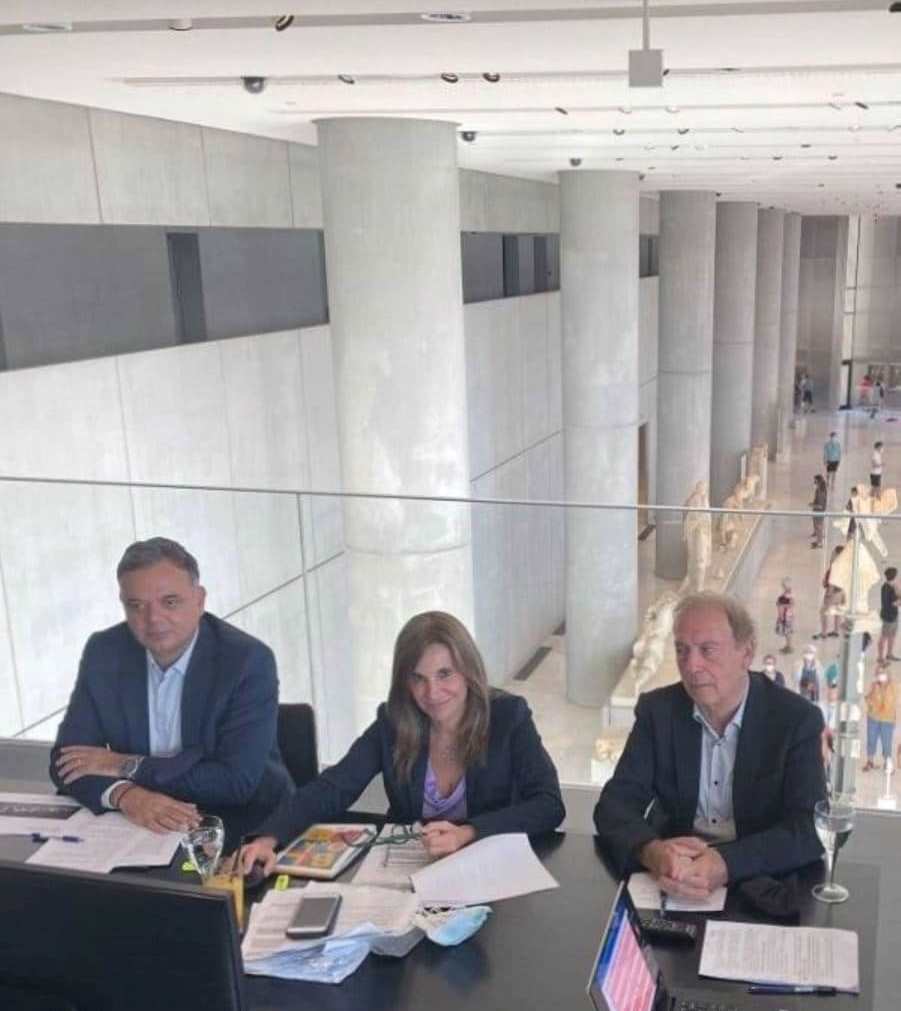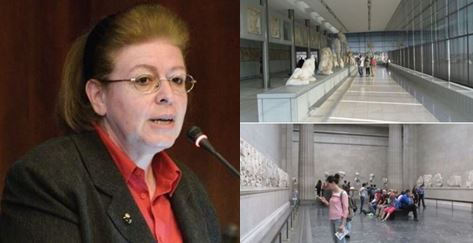From 27-29 September, the 22nd session of the ICPRCP, UNESCO's Intergovernmental Committee for Promoting the Return of Cultural Property to its Countries of Origin or its Restitution in case of Illicit Appropriation, took place in Paris.
The ICPRCP advisory body facilitates bilateral negotiations and offers mediator services to states concerning the return and restitution of cultural property.
To watch the proceeding of the three days, visit: http://webcast.unesco.org/events/2021-09-22ICPRCP/
The presentation by Greece took place on Wednesday the 28th of September. Greece was represented by the Ministry of Culture by the Secretary General of Culture George Didaskalou, the new General Director of the Acropolis Museum Nikolaos Stampolidis, the Head of the Directorate of Documentation and Protection of Cultural Heritage and Legal Adviser of the Special Legal Service of the Ministry of Foreign Affairs, Artemis Papathanassiou. For the first time, apart from the recommendation, a decision with stronger wording was also agreed.

Greece's Minister of Culture and Sports Lina Mendoni, made the following statement:
"Greece's request for the return of the Parthenon Sculptures to Athens has been on the agenda of UNESCO Intergovernmental Committees on the Return of Cultural Property to the Countries of Origin (ICPRCP) since 1984, when it was first introduced by Melina Mercouri and remains there again today, 30 September 2021.
At the 22nd session of the ICPRCP, which ended on the 29th of September evening, the Committee issued (due to the countless efforts of Greece and the invaluable support of Zambia, Egypt, and other countries-members of the ICPRCP) for the first time, a Decision concerning specially the issue of the return of the Parthenon Sculptures. The Committee urges , through the Decision, the United Kingdom to reconsider its position and to negotiate with Greece, in bona fide, acknowledging that the matter is intergovernmental - contrary to the British side's claim that the case concerns exclusively the Trustees of the British Museum - and that Greece is claiming rightly and legally the Return of the Sculptures. The new Decision, is a very important development in the recognition of the legality and intergovernmental character of Greece’s just claim.
I would like to thank from the bottom of my heart the members of the Greek delegation, as well as our Permanent Representation to UNESCO for their diligent commitment to the return of the Sculptures. All worked rigorously and consistently to achieve this extremely positive result.”

The UK's prsentation during the meeting upheld the BM's position with the same old and tired arguments for the continued retention of the fragmented sculptures from the Parthenon in Room 18. Nonetheless, there was a consensus among member nations that this cultural dispute deserved after all this time, to be resolved through the faciliation of the ICPRCP.
BCRPM in supporting Greece and nations across the globe, which have all recognised the significance of this peerless collection of sculptures and the exceptional top floor Parthenon Gallery in the Acropolis Museum, applaud these ICPRCP recommendations and the new decision. We are all looking forward to dialogue. It is our collective respect for the Parthenon, which deserves to be the catalyst for change, starting with honest talks to resolve the long awaited reunification of the Parthenon Marbles. The time is now.
The added value of this year's ICPRCP new decision as summed up in eKathimerini, reads as follows:
The decision of the 22nd session of the ICPRCP's Commission expresses its strong dissatisfaction with the fact that the issue remains unresolved due to the United Kingdom's stance. In addition, it urges the United Kingdom to reconsider its position and enter into a bona fide dialogue with Greece, emphasizing the intergovernmental nature of the dispute.
This decision was the result of the tireless efforts of the Ministry of Foreign Affairs together with the Ministry of Culture.
Accordingly, the text of this year's Recommendation reflects, inter alia, the Commission's concern that the Duveen Gallery at the British Museum, where half of the surviving Parthenon Sculptures are on display, is closed to the public due to the necessary restoration work.